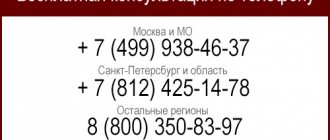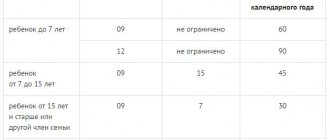Home / Situations
Back
Published: 10/15/2019
Reading time: 4 min
0
425
An employer requires its employee to go to work while on sick leave.
- Is it permissible to go to work, according to the law?
- What are the consequences for an employee of going to work on sick leave?
- What are the consequences for an employer of going to work on sick leave?
- Is work paid during sick leave?
- Is it possible for an employer not to allow a subordinate to work who is on sick leave?
- What should an employee do if he is forced to work on sick leave?
- How to prove illegal recruitment to work while on sick leave
What are the consequences of violating the regime for both parties, is it necessary to follow the leader’s lead?
Is it permissible to go to work, according to the law?
A sick leave certificate is issued by the attending physician in connection with a person’s illness. Until its completion, the patient must comply with the established treatment regimen. No “production necessity”, which is usually emphasized by managers, can be a reason for a sick person to go to work. If there is a document confirming incapacity for work, the employee is not required to come to the workplace.
Production necessity will result in a fine for the enterprise, according to Art. 5.27 Code of Administrative Offenses of the Russian Federation. Forced labor is also prohibited by the Labor Code (Article 4).
What are the consequences for an employee of going to work on sick leave?
For an employee, going to work while on sick leave may result in a reduction in benefits, according to Art. 8 of the Federal Law of December 29, 2006 No. 255-FZ “On compulsory social insurance in case of temporary disability and in connection with maternity.” To do this, an employer who does not want to see an employee within the organization until recovery simply needs to record the violation. A commission is created from representatives of the trade union and the workforce, which draws up a report on violation of the treatment regimen .
Based on the results of the report provided by the employer, the attending physician puts a special mark on the sick leave.
Calculation of sick leave in 2021
Calculation of sick leave in 2021 must be carried out taking into account the maximum base for social insurance contributions established for 2015 and 2021.
To calculate temporary disability benefits, you need to know:
- the amount of payments subject to social insurance contributions for the billing period, taken into account when calculating benefits;
- employee's insurance period;
- employee's daily allowance;
- number of days of incapacity for work on sick leave.
The amount of payments for the billing period includes all types of payments for which insurance contributions to the Federal Social Insurance Fund of the Russian Federation were calculated, made within the framework of the labor relationship between the employer and the employee.
Payments not subject to insurance premiums listed in Article 422 of the Tax Code of the Russian Federation are not included in the calculation of sick leave in 2021.
The amount of actual earnings should not exceed the maximum amount for which insurance premiums are calculated for each year of the billing period.
The maximum base for calculating insurance premiums by year, used when calculating sick leave in 2021, is:
- 2015 – 670,000 rubles;
- 2016 – 718,000 rubles;
- 2017 – 755,000 rubles.
The average daily earnings for calculating temporary disability benefits are determined by dividing the amount of payments subject to insurance contributions accrued for the two calendar years preceding the year of sick leave by 730 (Clause 3 of Article 14 of Federal Law No. 255-FZ). The number of calendar days falling within the period for which payments are taken into account does not matter.
Sickness benefits are paid in the amount of:
- 100% of earnings if the employee’s insurance coverage is more than eight years;
- 80% of earnings if the employee’s insurance coverage is from five to eight years;
- 60% of earnings if the employee’s insurance coverage is less than five years.
The amount of daily allowance is calculated by the formula.
What are the consequences for an employer of going to work on sick leave?
For an employer, the least that can result from an employee’s illegal presence in the workplace is a fine in accordance with Art. 5.27 Code of Administrative Offenses of the Russian Federation.
If, as a result of involving a patient in work, a complication of his underlying disease occurs, then he can easily claim compensation for harm caused to health (Articles 22, 220, 232, 233, 237 of the Labor Code of the Russian Federation).
Troubles will also arise if something happens to a subordinate at the workplace. Such an incident will be classified as a work injury.
The financiers explained, but... did not answer
Unfortunately, the financiers once again did not give a direct and concrete answer to the questions posed. First of all, they recalled that in accordance with the Regulations of the Ministry of Finance of Russia (approved by Order of the Ministry of Finance of Russia dated March 23, 2005 N 45n), the department does not consider on the merits appeals of organizations for clarification (interpretation of norms, terms and concepts) of the legislation of the Russian Federation and the practice of its application, on the practice of applying regulatory legal acts of the ministry, on conducting an examination of contracts, constituent and other documents of organizations, on assessing specific economic situations. Nevertheless, officials considered it necessary to pay attention to the following legislation. Firstly, in case of temporary disability, the employer pays the employee temporary disability benefits (Article 183 of the Labor Code of the Russian Federation). Secondly, for the appointment and payment of benefits for temporary disability, pregnancy and childbirth, the insured person submits (clause 5 of Article 13 of Law N 255-FZ): - a certificate of incapacity for work issued by a medical organization in the form and in the manner established by the federal an executive body that carries out the functions of developing state policy and legal regulation in the field of social insurance; - a certificate (certificates) about the amount of earnings from which the benefit should be calculated, from the place (places) of work (service, other activity) with another policyholder (other policyholders). Thirdly, as explained in paragraph 17 of the Letter of the Federal Social Insurance Fund of the Russian Federation dated October 28, 2011 N 14-03-18/15-12956, the certificate of incapacity for work performs a dual function, being a financial document that serves as the basis for the assignment and payment of benefits, and certifies the disability of citizens , confirming their temporary release from work. Fourthly, the basis for reducing the amount of temporary disability benefits is the violation by the insured person without good reason during the period of temporary disability of the regime prescribed by the attending physician (clause 1, clause 1, article 8 of Law No. 255-FZ). And finally, based on paragraphs. 48.1 clause 1 art. 264 of the Tax Code of the Russian Federation, other expenses associated with production and sales include the employer’s expenses for paying, in accordance with the legislation of the Russian Federation, temporary disability benefits (with the exception of industrial accidents and occupational diseases) for days of illness of the employee, which are paid at the expense of the employer and the number of which is established by Law No. 255-FZ. Payment is made only to the extent not covered by insurance payments made to employees by insurance organizations under agreements with employers in favor of employees in the event of their temporary disability.
Is work paid during sick leave?
Many workers, despite open sick leave, prefer to suffer illness at work in order to receive a higher salary than social benefits. But what type of accrual the accounting department will make depends on filling out the exit sheet.
If working days are entered, the employee will receive a salary. If you are on sick leave, you can only count on benefits.
If an employee performed the work specified in the employment agreement during working hours, then the enterprise, in accordance with Articles 2, 22, 129 of the Labor Code of the Russian Federation, is obliged to promptly pay him wages for the days worked.
But you won’t be able to receive both benefits and a salary at the same time.
Ways to prove violation
As a rule, the company does not seek to convict its employee of going to work while temporarily incapacitated. This is beneficial for them, because if a person is on sick leave, the Social Insurance Fund pays him for this time. But wages will not be accrued, because these payments cannot be combined.
Is it possible for an employer not to allow a subordinate to work who is on sick leave?
The deputy head of the Federal Service for Labor and Employment, I. I. Shklovets, competently advised the optimal solution for such a situation. A manager may not allow a subordinate to work. He must convince the employee not to violate the sick leave regime. In this situation, there are weighty arguments on the side of the manager: during illness, if a certificate of incapacity for work is issued, the salary is not accrued, and going to work is a violation of the regime, which is fraught with a reduction in benefits.
If, after spending several days on sick leave, a subordinate goes to work without providing a certificate of incapacity for work, then he can be required to provide a written explanation of the reason for his absence on the previous days, in accordance with Article 193 of the Labor Code of the Russian Federation. After receiving an explanation, the employee must be given a written notice of the need to comply with the regimen established by the doctor and not be allowed to perform duties. When reading the document, the subordinate must sign it.
If this measure also did not have an impact, then it is worth drawing up a report on violation of the treatment regimen, which must be sent to the medical organization.
Article 22 of the Labor Code of the Russian Federation obliges the employer to provide the employee with work under the conditions provided for in the employment agreement. But within the framework of labor legislation (according to Article 57 of the Labor Code of the Russian Federation), the employer is also obliged to provide compulsory social insurance. Based on the provisions of the Labor Code, the employer must prevent a subordinate from going to work if the latter is sick.
About early exit
Of course, you cannot violate the treatment regimen and voluntarily take up duties before the end of your sick leave. But this does not mean at all that a person does not have the right to report to work ahead of schedule. Such a possibility does exist if a person decides that there is no point in staying at home. But everything needs to be formalized, otherwise negative consequences cannot be avoided.
Let’s say there are a day left before the end of the sick leave, and the person has already reported to work. In this case, he must write a statement stating that he began his duties a day earlier. You also need to ask that this number be considered the first working day. The paper is sent to the employer and serves as a notification that the person has arrived at the organization earlier than expected.
What should an employee do if he is forced to work on sick leave?
Quite often, workers' rights are violated. If your boss requires you to start work while sick, you must:
- Calmly explain to the manager that going to work is a violation of the regime established by the doctor . It is worth arguing that the company may incur financial losses as a result of such actions. Everything needs to be discussed without nerves in order to extinguish the conflict at the initial stage.
- If the conversation does not help, you need to contact the labor inspectorate with a statement . Inducing work while on sick leave is a gross violation, for which the company will be fined. It is possible that the employee will be required to prove coercion. Therefore, if a conflict arises, it is worth recording telephone conversations.
What should an accountant do?
Of course, no one can prove punishable “forced labor” here - the boss, a kind soul, did not force, but only urgently asked. And he promised to reward. An accountant will have to figure out how to formalize what was promised. It is possible, in agreement with management, to provide him with financial assistance. This most likely will not raise unnecessary questions. You can also give bonuses, but only in a more careful manner. And in any case, not for the period in which the person was mostly absent from work, but for the next one. Otherwise, the validity of bonuses as tax expenses may be questioned.
You can compensate for working on sick leave with subsequent days off. After the sick leave is closed, attendance is entered on the report card for the number of days worked on sick leave, and wages are calculated for these days, and the employee rests on these days. Yes, the methods are “grayish”, but where do you tell them to go?
And finally, a radical, somewhat expensive, but more “streamlined” option for compensating the employee for time off during illness is to return sick leave to the employee, not to show sick leave on the time sheet at all, and to pay the usual salary for the entire period of sick leave. It is acceptable if the sick leave is long, but only a few days have been worked.
Or, if the company has such a practice, pay for work during sick leave by adding money “in the envelope.” Oh, wait, what are we talking about!.. We cross out this method as having nothing to do with the law.










